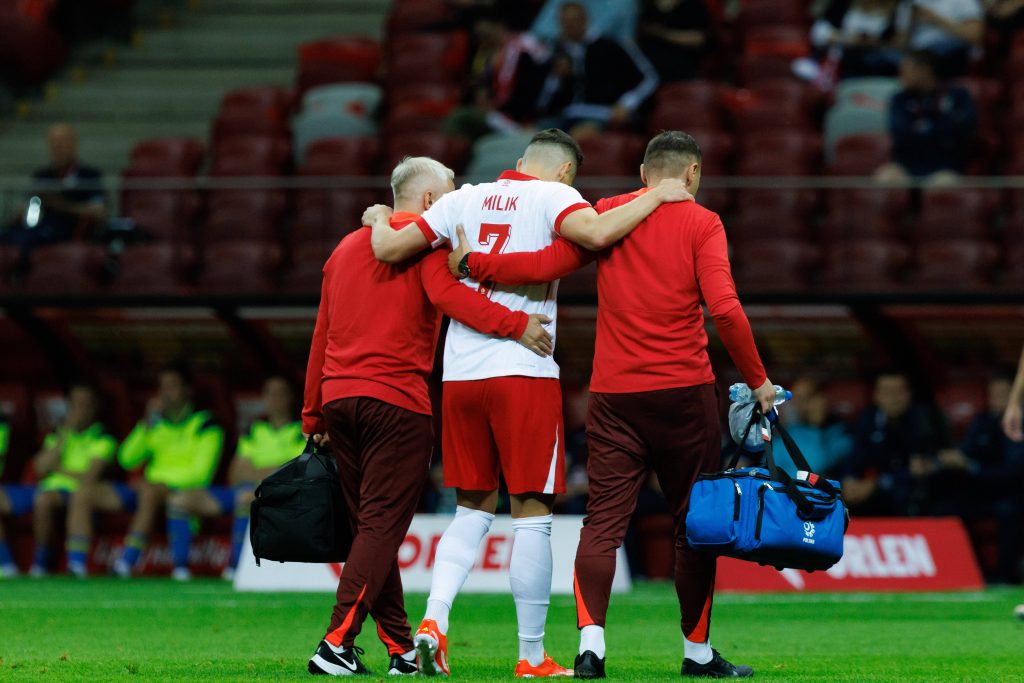Jason McKenna, Head of Content at Premier Injuries Limited, investigates whether an increased focus on mental health could have positive effects for players’ physical well-being too
We live in an era of marginal gains. Football clubs are trying to find ways to become more efficient and productive across a variety of outputs. Players’ sleep cycles are managed, dieticians are employed for optimal eating schedules, and footballers’ lives are under more scrutiny than ever before. But there is one area of football that is still hugely overlooked: mental health.
Football has always had a patchy relationship with mental health, but the efforts to innovate across almost ever other facet of the sport show more clearly than ever that mental health provision in football is severely lacking and can (and should) be drastically improved.
Furthermore, the research is clear: this would be beneficial to the lives of players. From a pure, performance-based sports psychology perspective, individuals would be able to refine their elite skillset further. However, there is also an obvious humane element: players’ lives could be improved with provisions to ensure that they are mentally well and safeguarded from a number of issues. Millions are spent on their healthcare for physical injuries, but mental health is overlooked.
The aim of this analysis is to highlight and explain that there are psychosocial factors that influence outcomes of Return To Play (RTP) as well as sports injury rehabilitation outcomes. Academic research shows the direct link between mental health provision and the ability of players to RTP from a wide range of injuries. I also want to open discussions on why this lack of provision is happening and why this is so damaging to the all-round welfare of players, as well as hindering their ability to recover from injuries.
The State of Play in Football
In 2022, Liverpool made headlines by announcing that they had brought in a psychiatric therapist, Ishbel Straker, to help with players’ issues. One would assume that this is a fairly routine appointment, but the reality is that football is heavily under-staffed and under-resourced when it comes to mental health support. The fact that this story attracted such attention shows what a rarity mental health support is for footballers.
Football still holds deeply conservative views on mental health provisions as a sport. In a recent interview with “The Mind Room”, Dave Wheeler said that the reality is that only around 50% of clubs have a sports psychologist working in the backroom. There is also an important distinction to make, as sports psychologists work on player performances, whereas issues around injuries such as fear of re-injury, anxiety and depression, and many other welfare problems do not fall within the remit, or potentially the skillset, of a Sports Psychologist. Even worse, often mental health is being left to physiotherapists or other staff who kindly try to treat such issues with confidentiality but do not know how to properly help players, lacking as they do the appropriate training or qualifications.
Evaluate the situation further and the numbers around professional football are shocking. A 2020 review paper on the provision of psychological support for long term injuries for footballers shows how inadequate provisions are. Seventy-five Heads of Medical Departments at clubs across the top tiers of English football were questioned and the data showed that only 37% of clubs reported that they had staff with relevant mental health training, whereas the majority of clubs (55%) did not have staff with any expertise[1]. This suggests that the majority of players’ injuries are being treated purely as physical issues and with no provision for the well-documented, attendant mental health concerns arising from such injuries.
Why Is This Happening?
Even with advances in technology, tradition and politics can still dictate the way clubs are run. Clubs and players still contend with the vestiges of toxic hyper-masculinity, among players or coaches (and thus can affect women’s’ teams, too; in addition, with women’s teams, the expense of additional staffing is all too often a consideration). Outwardly, professional football is making the right noises about inclusion and mental health, but the internal running of clubs can still be held back by these outdated ideas. A 2020 analysis expressed the concerns around this, stating that “cultural barriers still appear to be blocking the implementation of psychological support mechanisms for long-term injured footballers”[2].
An analysis of this club culture has shown that in order for players to get the correct mental health provisions that they need and deserve, there must be an overhaul in football’s mindset. We must move to environments in clubs that “promote and support rather than inhibit mental health”[3]. This report shows that the demand is there for mental health provisions with a huge increase in requests, with the number of footballers seeking support from the PFA rising by more than 500% between 2016 and 2018[4].
The Effect of This on Player Injuries
The impact of mental health issues is a huge problem, and this in of itself should be seen within the scope of “injuries”. Mental health illnesses are just as debilitating as a physical illness, which clubs are happy to treat. But, as well as mental health issues being debilitating in their own right, there is also a measurable effect that having no mental health provisions has on the outcome of long-term injuries for players.
First and foremost, fear of re-injury, also known as “kinesiophobia”, was identified as the single most common psychological issue among long-term injured players[5][6]. Former top flight player Nedum Onuoha explained how impactful a long term injury can be on the psychology of a footballer. In a 2022 article with the Athletic, Onuoha spoke specifically about Ben Chilwell, stating that “Chilwell came back from a big injury last year and there’s always a risk of re-injury. It can take a couple of years before you’re free of that”[7]. Players are currently continuing their careers and seeing psychological issues that last for an unnecessarily extended period due to a lack of provisions from clubs.
This can consciously or unconsciously affect a player in every part of their performance as someone may be less likely to go in for tackles than they did before, they may alter the way they run to “compensate” for this injury, and there can be real anxiety before matches in case the worst were to happen again. In practical terms, it means that players, if not given appropriate care, could have long-term psychological issues that will affect them on the pitch.
But the lack of psychological support also impacts Return to Play timelines for players. When going through the stages of return from an injury, players will have goals that they have to reach in order to be declared fit. However, reaching these marks in the process may be hindered by lack of mental health support. The literature points to the fact that “fear of reinjury may be responsible for poor return-to-sport rates in the absence of significant knee impairments, indicating the presence of psychologically mediated disability for some patients”[8]. Adding to this, the investigations show that “Pain-related fear of movement, a psychosocial construction and the fear-avoidance model, may influence recovery for patients who report fear of reinjury/lack of confidence as a barrier to return to sports”[9].
Looking specifically at ACL injuries, it has been found that “the most important factor in determining an athlete’s Return To Play (RTP) is his or her psychological state”. Psychological factors were such a key influence that “authors found no significant differences between athletes who returned to sports and athletes who did not return to sports. However, in a psychiatric questionnaire, the authors found significant differences between the two groups, and along with psychological factors significantly affect(ing) RTP in athlete”[10].
What Needs To Be Done
The reality is that literature on the relationship between mental health and footballing outcomes is limited. So few clubs partake in the process of offering mental health provisions when players get injured that it is hard to know how much of an improvement it will offer. So even though “all of these reviews agree that psychosocial factors influence rehabilitation outcomes” it is still unclear to how far the lack of mental health care is affecting footballers in their ability to return.
More studies need to be done, but also psychology and sports need to open up to new ideas. It is suggested that Sports Psychology itself needs a revamp as a discipline as it is too conservative in its approach. This is something suggested by research from Goldman and Gervis in 2021. The researchers found that sport psychology is based around positivism and thus has an inherently limited range of application and methodologies which “compromise” the ability to understand the importance of mental health support or sports psychology in relation to injuries[11].
But even if sports psychology were to change there is still a culture that needs to be overhauled. Football clubs must start employing more sports psychologists as well as psychotherapists to normalise getting treatment for ill health of any type. At the moment, the analysis states that “the limited stigma towards mental health and mental illness, and subsequently sport psychology, meant that some stakeholders refused to engage in what sport psychologists considered essential aspects of their job”[12], so even if sports psychology were better equipped, the mindset around it means that players would still be reluctant to engage with it.
We cannot rely on big name players to come out and state their issues, or place the onus on them to do so; this needs to be a proactive approach from clubs. They have the money and resources to be able to offer adequate help, but, as shown, this is so far too limited.
Conclusion
There is a clear link between the lack of provisions and deficiencies in players’ healthcare and welfare. Academic studies point to the fact that with better mental health players could have better areas of performance and output, as well as just an improvement in quality of life.
It is important that these topics are highlighted so that changes can be made. It is a cultural issue around clubs, but much like the fast uptake of data around clubs there is no good reason for clubs not to embrace treating or supporting mental health more effectively. Discussions need to happen so that mental health becomes normalised as part of the everyday for footballers.
[1] Gervis, M. et al. (2020), ‘A review of the psychological support mechanisms available for long-term injured footballers in the UK throughout their rehabilitation’, Science and medicine in football, 4(1), pp. 22–29
[2] Ibid.
[3] McGinty-Minister, K. L., Champ, F. M., Eubank, M. E., Littlewood, M. A., & Whitehead, A. (2023), ‘Stakeholder conceptualizations of mental health and mental illness in English Premier League Football academies’, Managing Sport and Leisure, 1–20
[4] Ibid.
[5] Ardern CL, Taylor NF, Feller JA, Webster KE., ‘Fear of re-injury in people who have returned to sport following anterior cruciate ligament reconstruction surgery’, J Sci Med Sport, 2012 Nov;15(6):488-95. doi: 10.1016/j.jsams.2012.03.015. Epub 2012 Jun 12.
[6] Lentz, Trevor & Zeppieri, Giorgio & George, Steven & Tillman, Susan & Moser, Michael & Farmer, Kevin & Chmielewski, Terese (2014), ‘Comparison of Physical Impairment, Functional, and Psychosocial Measures Based on Fear of Reinjury/Lack of Confidence and Return-to-Sport Status After ACL Reconstruction’, The American Journal of Sports Medicine, 43.
[7] https://www.nytimes.com/athletic/3835778/2022/11/12/fear-injury-world-cup-football/
[8] Gervis, M., Pickford, H., Hau, T., & Fruth, M. (2019), ‘A review of the psychological support mechanisms available for long-term injured footballers in the UK throughout their rehabilitation’, Science and Medicine in Football, 4(1), 22–29
[9] Ibid.
[10] Ellman MB, Sherman SL, Forsythe B, LaPrade RF, Cole BJ, Bach BR Jr., ‘Return to play following anterior cruciate ligament reconstruction’, J Am Acad Orthop Surg. 2015 May;23(5):283-96
[11] Goldman, A., & Gervis, M. (2021), ‘”Women Are Cancer, You Shouldn’t Be Working in Sport”: Sport Psychologists’ Lived Experiences of Sexism in Sport’, The Sport Psychologist, 35(2), 85-96
[12] McGinty-Minister, K. L., Champ, F. M., Eubank, M. E., Littlewood, M. A., & Whitehead, A. (2023), ‘Stakeholder conceptualizations of mental health and mental illness in English Premier League Football academies’, Managing Sport and Leisure, 1–20
Header image copyright IMAGO / Maciej Rogowski / SOPA Images








